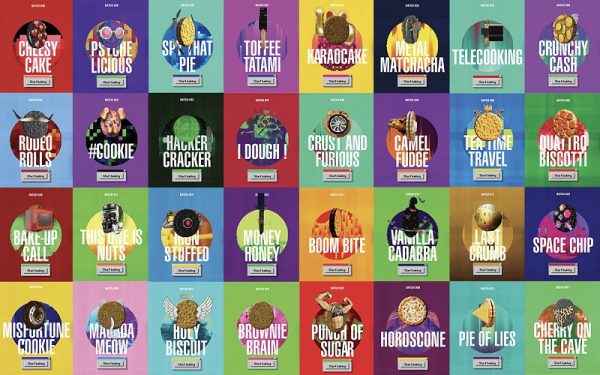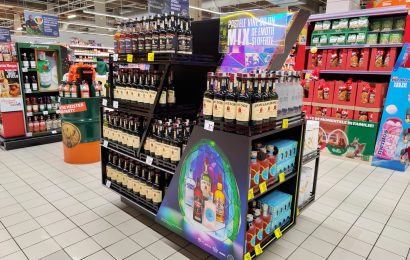UNESCO launches the Cookie Factory, to raise awareness of the potential risks and ethical challenges of AI.
AI permeates our daily life, from recommendation algorithms to medical care and education. It has the potential to be highly beneficial and help us solve some of the most pressing issues of the century. But it also carries serious risks and could compromise our human rights. For example, the mediation of online information by algorithms and AI challenges many of the founding principles of democracy such as freedom of expression, and can cause disinformation. This can lead to the emergence of stereotypical biases, such as an online search for “great historical figures” retrieving only white males. Facial recognition raises the same kind of issues when this tool used by governments and police forces is still unable to recognize women or black people.
In order to ensure that Artificial Intelligence works in favor of humanity, UNESCO has launched an unprecedent international negotiation which will very soon lead to the adoption by its 193 Member States of a Recommendation on the Ethics of AI. For the first time it will provide a global normative framework on the ethics of artificial intelligence, combining concrete actions and universal principles. Among them is arguably one of the most pressing issues: respect for privacy.
AI systems are trained using our data. Beyond our taste in clothes or our interests, they also take into account our opinions and political affinities, our medical conditions and even our sexuality. And today, some of these personal data are collected using a tool everyone is already familiar with: cookies.
In order to alert the general public of the problem of digital privacy, UNESCO is launching The Cookie Factory. This extension allows you to assume a new identity as you browse the internet, using fake cookies, and shows you exactly how your data is harvested in real time.
From the Japanese Hacker to the Survivalist and the Conspiracy Theorist, The Cookie Factory allows you to choose from some 40 fictitious profiles. The extension replaces temporally your own cookies on all the websites you visit including YouTube and Amazon, with your chosen avatar’s cookies. This experience is enabled by AI: you will be able to watch, as the AI navigates more than a hundred pages by clicking on keywords corresponding to the avatar’s profile. These pages, tracked exactly as they are in a normal browsing session, will fill your browser with your avatar’s cookies. At the same time, they will tell the story of the avatar through a visual and audio narrative, exploiting the goldmine of content available on the internet. From recommendations on YouTube and Amazon to your history, favourites and targeted advertisements, once these new cookies have been generated, your browser believes that you have indeed become someone else.
The extension even allows you to create your own profile by associating four of the 76 ‘themes’ on offer. In total, 158 185 764 possibilities to fool tracking algorithms. You can, of course, revert to your real identity and cookies whenever you wish by simply deactivating the extension.
This fascinating experience is brought to you by DDB Paris in close collaboration with the production studio makemepulse. It took more than a year to develop and aims to support UNESCO in its effort to raise the awareness of the general public to the importance of cookies and help individuals make more informed decisions about their use of AI and what they expect from it.
This communication campaign starting on November 25, 2021 is driven by a trailer, supported by a PR and social media.

CREDITS
UNESCO
Clients : Gabriela Ramos, Julien Ravalais Casanova, Matthieu Guevel
Agency : DDB Paris
Executive Creative Director : Alexander Kalchev
Creative Directors : Pierre Mathonat, Alexis Benbehe
Art Director : Shanel Redzheb and Charlotte Faurisson
Copywriter: Lucie Guidon
Social Media : Pierre Guengant, Marie Le Scao, Elise Lassimoulie
Account Managers : Vincent Léorat, Nicolas Carlotti, Mathieu Bliguet, Tanguy Mortreuil, Justine Roux
Project Manager : Benoît le Morvan
Digital Project Managers : Philippe Saint-Martin and Cécile Picard
Post-producers : Jérôme Deplatière, Sylvie Dumas
Sound production : Cédric Boit, Alexandre Vicart, Clément Reynaud, Marine Cremer, Romane Bourdier, Angélique Laffond
Traffic Managers : Sophie Toqué and Virginie Fruchard
PR Director : Anne-Marie Gibert
Digital production studio : makemepulse
Executive Creative Director: Nicolas Rajabaly
Chief Technology Officer: Antoine Ughetto
Digital Art Director : Guillaume Miche
Head of Production: Julien Rault, Gregory Bruneau
Producer : Juliette Desbois
Developer : Christophe Massolin
Post-production Studio : Mikros Image (Julien Pinot and Nicolas Huguet)
Music : Universal






